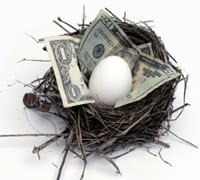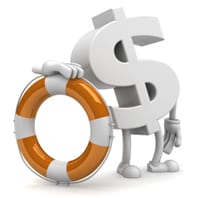 Can you save a year’s worth of income for your emergency savings account? Yes, you can. Here are some steps to get started:
Can you save a year’s worth of income for your emergency savings account? Yes, you can. Here are some steps to get started:
- Be patient. You won’t save a year’s worth of income in a single year. Work out how long it will take by determining how much you can set aside each month. If it takes 3-5 years, then so be it. Five years will go by whether you save money or not, so you might as well have something to show for it.
- Set aside a firm amount from each paycheck. Think of it as a monthly or weekly bill you owe yourself. You can even automate the process so it’s deducted from your paycheck like taxes or insurance.
- No take backs. Your savings account deposit should be just as irrevocable as your mortgage payment or utility bills. You can’t call the gas company and ask for your payment back so you can buy a new outfit. Don’t take money out of savings for anything less than a real emergency.
- Reduce expenses. There are so many ways to cut back, especially when you know it’s temporary. Do you have cable TV, a gym membership, an expensive stylist? Give those up for a few years. As soon as you have a year’s worth of savings, you can go back to the way things were.
Remember, saving money is not a sacrifice because the money is ultimately yours.


